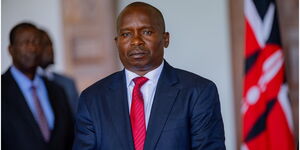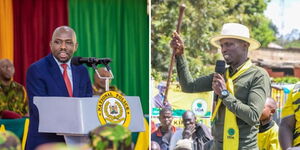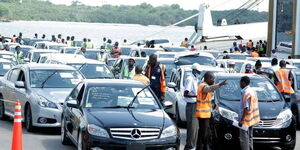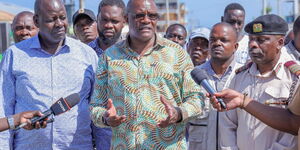Information, Communications, and Digital Economy Cabinet Secretary William Kabogo has revealed that his ministry is working to ensure that the internet is considered an essential service.
Speaking when he appeared before the National Assembly Committee on Communication, Information, and Innovation on Thursday, Kabogo stated that this move was in line with creating more opportunities for all Kenyans.
"I also informed the committee that I am preparing a Cabinet Memo to propose classifying the Internet as an essential service, a step that will ensure universal access and digital empowerment for all Kenyans," he stated.
"We remain committed to bridging the digital divide and creating more opportunities for our people through technology and innovation."
If made an essential service, the Internet will join the ranks of hospitals, water supply, fire services, ferry services, and local government authority services in terms of urgency.
The Labour Relations Act in Kenya plays a significant role in defining essential services, particularly concerning the right to strike. It describes those as those which, if interrupted, would likely endanger the life or health of the population.
However, Kabogo stated that funding cuts had derailed plans to achieve this and had majorly affected two areas including the population of digital hubs in Kenya and the connection of the National Fibre Network.
So far, only 18 hubs connected out of the 390 annual targets while only 1,500 kilometres of fibre installed against the 5,000-kilometre target.
Four more sectors, however, reached and surpassed their targets with the Business Process Outsourcing (BPO) exceeding the target to create 10, 000 jobs and recording the creation of 19,650 new jobs.
Reportedly, 49,513 youth were trained in digital skills through the Ajira Digital program.
Kabogo also reported that the construction of the Konza Complex was progressing well and the Kenya Advanced Institute of Science & Technology (KENYA-AIST) was set for handover in March.
In June 2024, President William Ruto allocated Ksh40 billion to the building of ICT hubs in every ward and gave Members of Parliament a four-month deadline to ensure that this was implemented.
"I have signed a new law for CDF and in the law, I have directed that each ward should have an ICT hub. We have allocated Ksh40 billion to connect the internet in every ward in Kenya so that the youth can get online and do digital jobs," President Ruto stated.
"I have already negotiated 500,000 jobs for Kenyans in different parts of the world and for that reason, we are signing 19 labour agreements including one with Germany to make sure that these young people can get jobs," the President added.
The ICT Ministry, then headed by Eliud Owalo, had also announced that the plan to connect the 5,000 kilometres yearly was getting a boost from Kenya Power as the fibre cables would be laid on the power lines saving at least Ksh300,000 per Kilometre of cable.












